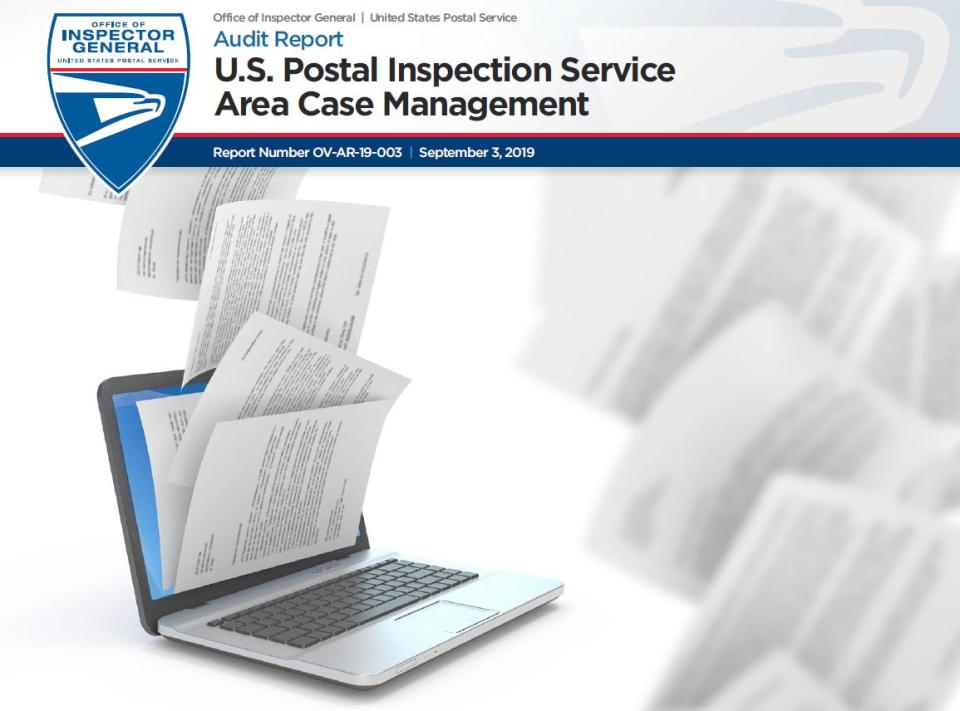U.S. Postal Inspection Service Area Case Management
Objective
Our objective was to assess whether the U.S. Postal Inspection Service has developed and implemented adequate controls to ensure proper oversight of area cases.
The mission of the Postal Inspection Service is to support and protect the U.S. Postal Service and its employees, infrastructure, and customers; enforce the laws that defend the nation’s mail system from illegal or dangerous use; and ensure public trust in the mail. In fiscal years (FY) 2018 and 2019, the Postal Inspection Service had about 1,268 and 1,153 postal inspectors in 17 divisions across the nation, respectively. Postal inspectors are federal law enforcement agents responsible for investigating postal-related crimes.
Postal inspectors use the Case Management System to document and track investigative activities primarily using field notes or investigative summary logs (ISL). Area cases are typically established to conduct preliminary investigative activities, whereas a jacketed case is opened when there is indication or occurrence of criminal activity warranting further review. From October 2017 to December 2018, there were 1,373 closed area cases. Area cases should not be opened longer than three years and are managed at the division level. Inspectors should document case activities timely and accurately. Team leaders must review area case files, using the Closed Case Checklist, before case closure.
What the OIG Found
We found that the Postal Inspection Service does not have adequate controls and processes in place to oversee area cases. Postal inspectors did not adequately document field notes or ISLs and did not update investigative activities and close area cases timely.
Specifically, of the 90 sample area cases closed between October 2017 and December 2018, we identified:
- 89 cases did not have sufficient field notes or ISLs to document daily activities. As a result, 216,749 of 336,238 (64 percent) workhours were charged to area cases without the required documentation.
- 53 cases did not have investigative details updated every six months.
- 29 cases were not closed within three years.
- 10 of 21 cases that required special reports were not submitted within seven days of a major investigative event.
Overall, these issues occurred because of inattention to case management requirements by assistant inspectors-in-charge, team leaders, and inspectors. Specifically, assistant inspectors-in-charge and inspectors stated they are aware of the requirement to document daily activities, but they predominately documented only significant events. Also, the policies have conflicting information related to using field notes or ISLs to document significant events versus daily activities. In addition, team leaders did not conduct comprehensive reviews before approving case closures, although 96 percent of the sample cases we reviewed contained a completed Closed Case Checklist.
A lack of oversight and insufficient documentation could hinder management’s ability to achieve the Inspection Service’s mission or assess the productivity of individual inspectors. The Postal Inspection Service spent about $11,550,120 annually on unsupported workhours.
What the OIG Recommended
We recommended the Postal Inspection Service update policies – to ensure investigative documentation requirements are consistent, and to include periodic reviews of investigative documentation; develop controls to ensure periodic reviews of investigative documentation are conducted; and provide refresher case management training to all team leaders and inspectors.

